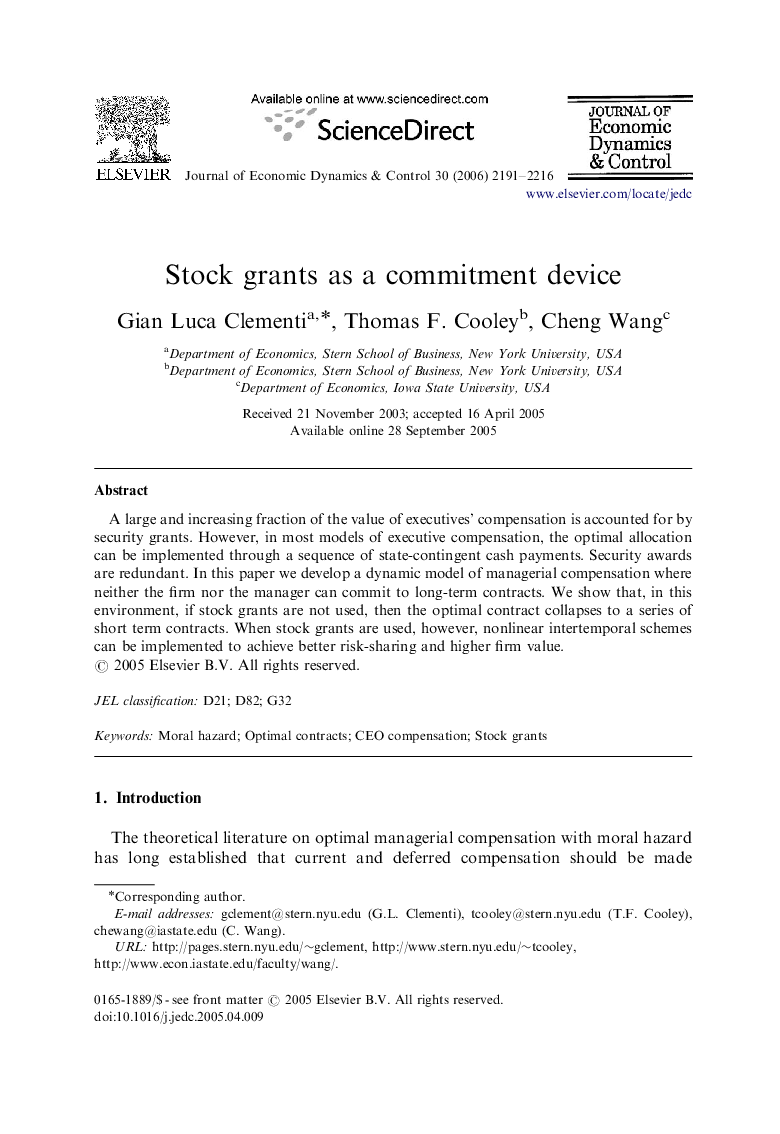| Article ID | Journal | Published Year | Pages | File Type |
|---|---|---|---|---|
| 5099725 | Journal of Economic Dynamics and Control | 2006 | 26 Pages |
Abstract
A large and increasing fraction of the value of executives' compensation is accounted for by security grants. However, in most models of executive compensation, the optimal allocation can be implemented through a sequence of state-contingent cash payments. Security awards are redundant. In this paper we develop a dynamic model of managerial compensation where neither the firm nor the manager can commit to long-term contracts. We show that, in this environment, if stock grants are not used, then the optimal contract collapses to a series of short term contracts. When stock grants are used, however, nonlinear intertemporal schemes can be implemented to achieve better risk-sharing and higher firm value.
Related Topics
Physical Sciences and Engineering
Mathematics
Control and Optimization
Authors
Gian Luca Clementi, Thomas F. Cooley, Cheng Wang,
